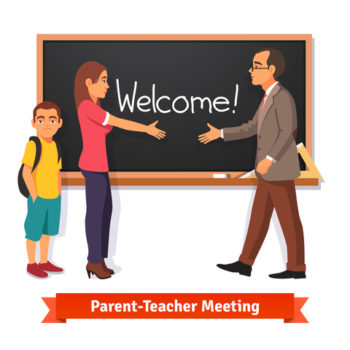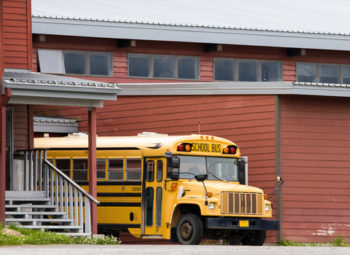 IEP (Individualized Education Program) and IDEA (Individuals with Disabilities Education Act) Parent Teacher Collaboration
IEP (Individualized Education Program) and IDEA (Individuals with Disabilities Education Act) Parent Teacher Collaboration
Some of our newly confirmed leaders are unfamiliar with IDEA, the key federal law involving students with disabilities IDEA. Given the current political reality, if you are the parent or grandparent of a special education student, it is critical that you learn how best to advocate for your child.
What is IDEA and how does it affect special education students?
IDEA (individuals with Disabilities Education Act) was passed as a follow up to earlier legislation mandating education of handicapped students. There are several important aspects to this law that spells out guidelines for delivering and protecting “Free Appropriate Pubic Education for all children.” The public school develops a plan for this education through an IEP (Individualized Education Program).
For an overview please review: https://law.duke.edu/childedlaw/docs/Special_Education_Law.pdf
Parent and Teacher Participation
It is best when the family and teachers work together to develop a child’s IEP, including his or her goals for progress, the educational setting, and follow up communication.
How can grandparents provide support in this process? To learn about your grandchildren’s school experience, you can:
 -Ask your grandchildren about school
-Ask your grandchildren about school
-Help them with homework or read to them
-Volunteer in your grandchild’s classroom regularly or occasionally chaperone a field trip
-Develop a positive relationship with your grandchild’s teacher
Personal Experience:
School:
In my second year as a Resource Teacher at a local high school, I had a student with learning disabilities in my classroom. He was well liked, quiet but disorganized. For this young sophomore, his biggest challenge was attendance. He liked to go to the “path” and s moke cigarettes during recess. This often meant that he skipped class after recess. I knew very little about his home life. I came to find out that he was being raised by his grandmother, who had full custody while his mother was addressing her own substance abuse problems. His grandmother was readily available and interested in his needs. Together we developed a reenforcement system to address his attendance goal that he not be late to class after recess. This was a joint effort. I would go to the path to look for him at recess and report back to his grandmother daily. A report of good attendance meant that his grandmother gave him more freedom on the weekends. Over time, working together with daily communication, his attendance improved.
moke cigarettes during recess. This often meant that he skipped class after recess. I knew very little about his home life. I came to find out that he was being raised by his grandmother, who had full custody while his mother was addressing her own substance abuse problems. His grandmother was readily available and interested in his needs. Together we developed a reenforcement system to address his attendance goal that he not be late to class after recess. This was a joint effort. I would go to the path to look for him at recess and report back to his grandmother daily. A report of good attendance meant that his grandmother gave him more freedom on the weekends. Over time, working together with daily communication, his attendance improved.
Family:
Prior to the holiday break, I spontaneously decided to visit my grandchildren’s preschool and share about our family’s holiday tradition. It meant dropping everything I was doing, jumping in the car, fighting traffic and arriving a little late. Despite this stressful entrance, my grandchildren were both surprised and very pleased to share their school experience with me. My four year old granddaughter exuberantly introduced me to her teachers, her classmates, and gave me a tour of her school. I sat with both grandchildren during circle time and was able to observe what a great fit this setting has been for them. Without this visit, I would not have known this part of their world. She was happy I was there, and I was happy to learn about her world. It was a win-win situation.
her teachers, her classmates, and gave me a tour of her school. I sat with both grandchildren during circle time and was able to observe what a great fit this setting has been for them. Without this visit, I would not have known this part of their world. She was happy I was there, and I was happy to learn about her world. It was a win-win situation.
With my heartfelt wishes for Parent and Grandparent-Teacher Advocacy through IDEA,
Karen
Copyright (c) 2016 by GenParenting

Karen Salzer has over thirty years’ experience as a resource teacher in the Palo Alto public schools. She earned a doctorate in education from Stanford University. Her areas of expertise involve working with culturally diverse students with special needs including autism, emotional disturbances, learning disabilities, and health issues. As a special educator, Ms. Salzer served as a liaison between parents of special needs students and school staff. She guided parents and staff in identifying an appropriate education for each student in the public school setting. Additionally, she aided students and parents in navigating the educational requirements for graduation, test-taking and in finding support services within the community. Through her leadership, Ms. Salzer encouraged collaborative problem-solving between parents and school staff – such as accommodations for test taking, extended time and use of technology. She loves to follow-up with her students when they become adults and to highlight their many successes in education and careers. Ms. Salzer uses these success testimonials to reassure parents of other children and to encourage them to help their children pursue their full potential. Ms. Salzer is the mother of four adult children and helps care for her five grandchildren

